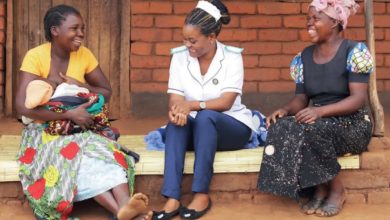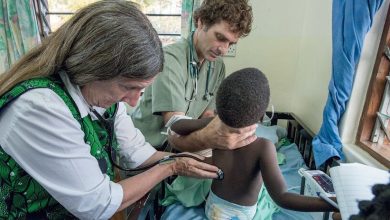Kidney patients in agony
In Chisazima Village on the outskirts of Kasungu Town, solemn hymns blare from a family that watched Raphael Banda, 38, die because they could not afford blood-cleaning service patients with kidney complications need to live longer.
“He was full of life, always cracking jokes,” recalls his sister, Angela. “But we watched him die slowly, cursing ourselves for being too poor to save someone we loved.”

She recalls that her brother, who used to work in a maize mill, first complained of nausea and fatigue after hard labour.
“He went to hospital when his feet started swelling and doctors at Kamuzu Central Hospital [KCH] in Lilongwe said he needed dialysis urgently, three times a week,” Angela recounts.
However, a dialysis machine was a spring too far.
“We needed to spend about K300 000 per session at a private hospital as the list of patients waiting for a turn at KCH was too long. We couldn’t afford it,” she laments.
Only two of over 500 public health facilities nationwide have dialysis machines. These are KCH in Lilongwe and Queen Elizabeth Central Hospital (QECH) in Blantyre.
For the rural poor like the Bandas of Kasungu, kidney complications constitute a death sentence due to costly hospital trips that drain their meagre incomes.
“My brother often missed hospital appointments.
We had to sell our goats and our only cow. Then debts reduced us to beggars, since kidney issues don’t wait for payday,” says Angela.
Banda died on a Sunday morning, surrounded by his family.
He was “too swollen to move,” the deceased’s sister recalls. “We said goodbye to a brother, his laugher and our hope.”
Barbara Kapenuka lost a sister, Yamikani, in June this year. The deceased spent years travelling about 1 000 kilometres from Wovwe Hydropower Plant Karonga to get dialysis twice a week at Mwaiwathu Private Hopital in Blantyre.
“I’ve lost a sister and a friend,” said Kapenuka after burial at HHI Cemetery near the hospital.
She remembers the long hospital trips and the nights they spent praying for a miracle that never came.
“Her death could have been averted if there was a dialysis nearby,” she says.
But neither Karonga District Hospital nor Mzuzu Central Hospital has one.
“Doctors said she needed dialysis thrice a week, but months passed without accessing the machines at QECH as the waiting list was too long,” she recounts.
She sought the service at the private hospital where she could only get slots twice.
To reduce transport costs and the tedious travels that took a toll on her life, the family temporarily rented a house in Lilongwe.
Low investment in kidney treatment and support impoverishes Malawians just when policymakers and politicians envision everyone getting quality healthcare without facing financial hardship.
Queen Elizabeth Central Hospital (QECH) deputy director Zuze Kawale says the Southern Region’s largest hospital has five dialysis machines, but only four work. KCH has about 10.
He says “We get requests from surrounding districts.
“Every week, we get three to four patients request to start dialysis, which is overwhelming for the few machines available.”
Clinical staff often refer desperate patients to Mwaiwathu and Blantyre Adventist private hospitals. Similarly, KCH signposts some to Partners in Hope in Lilongwe.
“When patients present with end-stage kidney disease requiring dialysis, our options are limited. If the patient has medical insurance and is able to access dialysis at a private hospital, they are encouraged to do so until a slot is available at QECH,” says Kawale.
The major losers are the poor who rely on free medical care in public hospitals.
“Those who cannot afford are treated to limit symptoms that arise due to chronic kidney disease, but are not offered dialysis due to limitation of space,” he says.
Those with kidney failure need dialysis for a lifetime while patients with acute kidney injury require the blood-cleaning procedure until they recover.
“It’s unfortunate to see patients dying because they cannot access this service,” says Kawale.
He reckons the hospital which provides dialysis for clients from the Southern Region, including the East, requires at least 15 functional machines to ease the pressure.
Kawale elaborates: “It would be better if Zomba Central Hospital had a dialysis unit. This will relieve pressure from QECH and it will serve districts like Mangochi, Machinga, Balaka and Ntcheu.”
For many Malawians, kidney disease is a silent killer—underdiagnosed, undertreated, and hidden behind walls of poverty.
“It’s strange we rarely talk about kidney disease here, but people are dying in silence,” says Angela. “People just think it is witchcraft when someone starts swelling and wasting. By the time the condition is detected, one is already dying.”
The woman and her family are only happy to break the silence, hoping government and partners will invest more to close the gap and educate Malawians about the importance of check-ups for early detection and treatment.
As dirges fade in Chisazima, mourners ask: How many more must we bury before something changes?
This is Kapenuka’s question too.
“Telling this story will not bring back my sister, but mine is a cry for better kidney treatment and care in the country. No life should be lost due to a treatable condition.”
We have asked the Minister of Health Khumbize Kandodo Chiponda what government is doing about low access to dialysis, but she has yet to respond.





